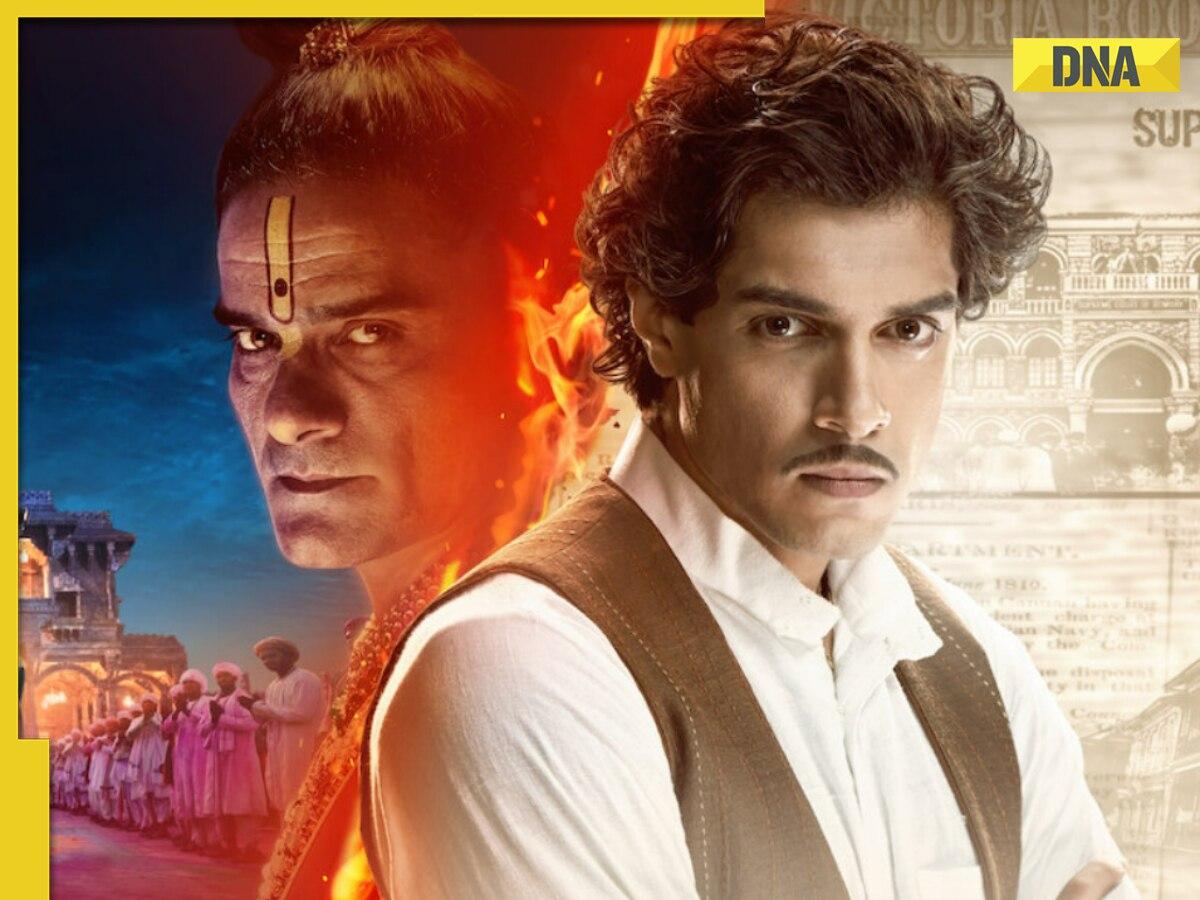
The 2024 historical drama “Maharaj” has captured considerable attention as it marks the acting debut of Junaid Khan, son of Bollywood superstar Aamir Khan. In this period piece, Junaid Khan takes on the formidable role of social reformer Karsandas Mulji, while Jaideep Ahlawat brilliantly essays the antagonist, Maharaj Jadunath Brijratan, also known as JJ. The film, which is based on the real-life 1862 Maharaj Libel Case, premiered on Netflix on June 21. However, its initial release had been delayed a week due to a ruling by the Gujarat High Court.
The director of “Maharaj”, Siddharth P Malhotra, recently held a press conference, unveiling some intriguing behind-the-scenes decisions that shaped the film. One of the most surprising revelations was that the late actor Irrfan Khan was the initial choice to play the complex character of the villain. Malhotra candidly stated, “The only person we could think of for that role was Irrfan Khan. There was nobody else who could play this role but Irrfan Khan.”
Sadly, the untimely demise of Irrfan Khan in 2020 left a void that was difficult to fill. The seasoned director then turned his attention to Jaideep Ahlawat, who he believed could embody the multifaceted villainous character with equal credibility. Reflecting on this decision, Malhotra said, “I kept telling Jaideep sir there’s only one actor in the entire universe who can do this, and that’s him. He can do anything; he’s one of the best actors we have, undoubtedly. It took us time to convince him to do this; it was a lot of pressure on him. He’s rightfully getting all the love he gets for every film.”
The challenges and hesitations that came with this role were not one-sided. In an interview with ANI, Jaideep Ahlawat himself opened up about his initial doubts regarding the project. He revealed, “In the beginning, I thought that this is a very difficult character. It is not going to be easy to handle. I told my brother that I don’t think I can do this.
.” These reservations highlight the complexity and depth involved in portraying Maharaj Jadunath Brijratan, a character that requires a fine balance of intensity and subtlety.
However, a pivotal meeting with director Siddharth P Malhotra turned the tide for Ahlawat. Recounting this transformative experience, he mentioned, “The way he narrated Maharaj, I was like, yes, I should do this.” It was this compelling vision from Malhotra that ultimately reassured Ahlawat and gave him the confidence to take on the role.
“Maharaj” is set in a time when India was grappling with deep-seated social and religious issues. The film brings to life a court case that accused the religious leader, Maharaj Jadunath Brijratan, of immorality, a case that attracted wide public attention. Through this historical lens, the film explores themes of justice, morality, and social reform.
Apart from its rich narrative, “Maharaj” also boasts a meticulous portrayal of the 19th century, complete with detailed sets and elaborate costumes that transport viewers to a different era. The film’s release on Netflix has made it accessible to a global audience, drawing viewers into an essential chapter of Indian history that remains relevant even today.
The casting choice, initially pegged for Irrfan Khan and later shouldered by Jaideep Ahlawat, underscores the director’s vision and the faith he had in his actors. Malhotra’s revelation about his casting decisions adds another layer of depth to the character of Maharaj Jadunath Brijratan, further enriching the audience’s viewing experience.
This historical drama, however, was not without its hurdles. The film’s initial release was stalled by a ruling from the Gujarat High Court due to sensitivities surrounding its subject matter. Despite these obstacles, “Maharaj” has successfully premiered on Netflix, where it continues to garner attention and praise.
Newcomer Junaid Khan’s debut holds significant promise. His portrayal of Karsandas Mulji against the intensely villainous character played by Ahlawat offers a gripping dynamic central to the film’s narrative. The journey of making “Maharaj” and bringing it to the screen, peppered with challenges and triumphs, stands as a testament to the collaborative spirit of filmmaking.
As audiences worldwide delve into the intricate world of “Maharaj,” the film not only educates but also engages, making it a noteworthy addition to the annals of Indian cinema.










